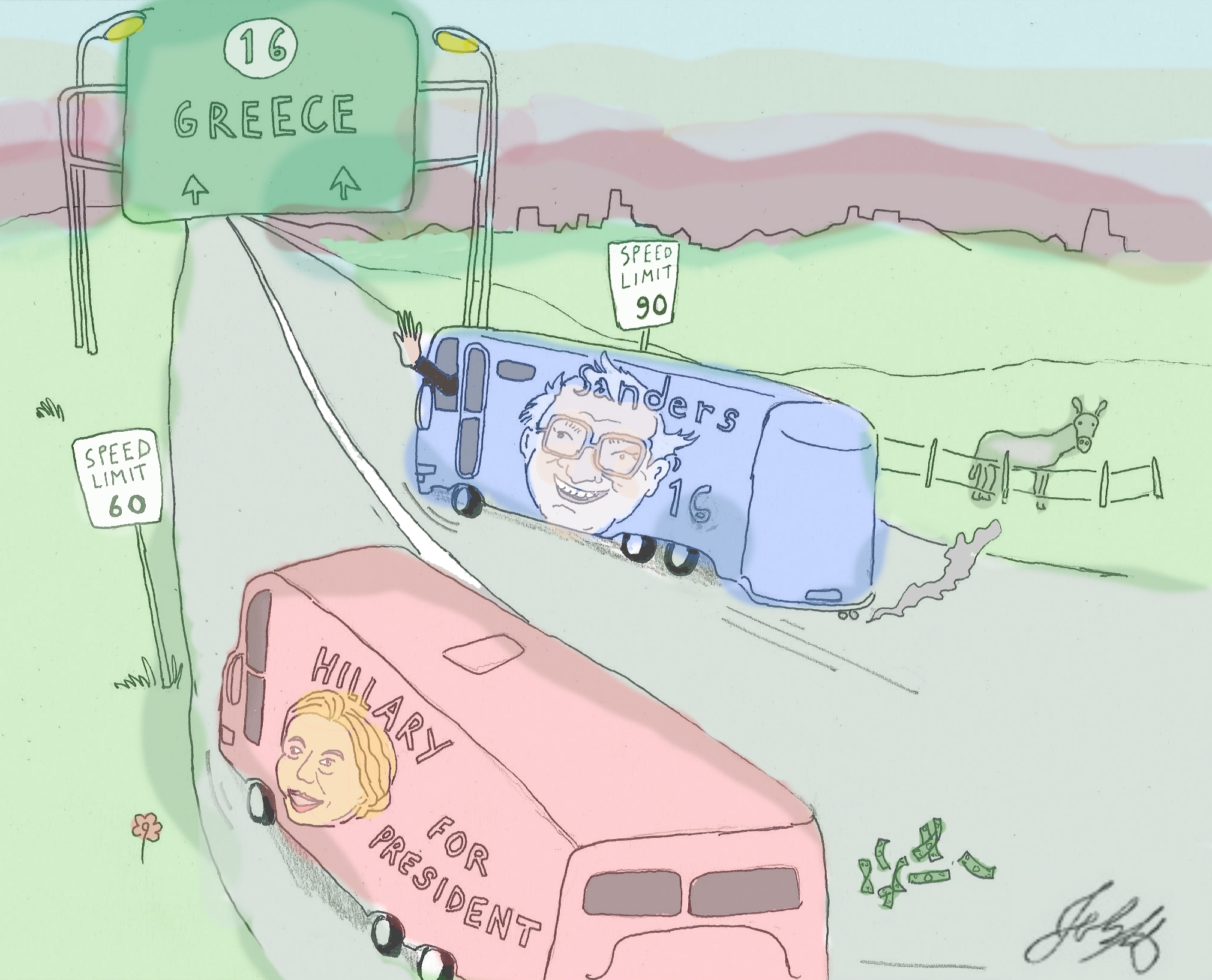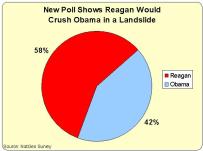Having been inspired by Ronald Reagan’s libertarian-ish message (and track record), I’ve always been suspicious of alternative forms of conservatism for the simple reason that they always seem to mean bigger government.
- There was George H.W. Bush’s “kinder and gentler” conservatism, which translated into more statism.
- There was George W. Bush’s “compassionate conservatism,” which translated into more statism.
- The “national greatness” conservatism associated with John McCain seemed to justify more statism
- The more-recent movement called “reform conservatism” also seems to involve more statism.
To be fair, proponents of all these approaches always paid homage to the role of markets, so we’re not talking about Bernie Sanders-type nuttiness.
But I don’t want to travel in the wrong direction,  even if only at 10 miles-per-hour rather than 90 miles-per-hour.
even if only at 10 miles-per-hour rather than 90 miles-per-hour.
 even if only at 10 miles-per-hour rather than 90 miles-per-hour.
even if only at 10 miles-per-hour rather than 90 miles-per-hour.
Now there’s a new alternative to Reaganism called “national conservatism.” It’s loosely defined, as you can see by reports from both left-leaning outlets (New York, New Republic) and right-leaning outlets (Townhall, Daily Signal).
There are parts of this new movement that are appealing, at least if I’m reading them correctly. Proponents are appropriately skeptical of global governance, though maybe not for the reasons that arouse my antipathy. But the enemy of my enemy is my friend in this battle.
They also don’t seem very fond of nation building, which also pleases me. And I also am somewhat sympathetic to their arguments about national unity – assuming it’s based on the proper definition of patriotism.
But their economic views, at best, are worrisome. And, as George Will opines, they’re sometimes awful.
…“national conservatives”…advocate unprecedented expansion of government to purge America of excessive respect for market forces and to affirm robust confidence in government as a social engineer allocating wealth and opportunity. …The Manhattan Institute’s Oren Cass advocates “industrial policy” — what other socialists call “economic planning”… He especially means subsidizing manufacturing..he admits that as government, i.e., politics, permeates the economy on manufacturing’s behalf, “regulatory capture,” other forms of corruption and “market distortions will emerge.”Emerge? Using government to create market distortions is national conservatism’s agenda. …Their agenda is much more ambitious than President Richard M. Nixon’s 1971 imposition of wage and price controls, which were temporary fiascos. Their agenda is even more ambitious than the New Deal’s cartelization of industries, which had the temporary (and unachieved) purpose of curing unemployment. What national conservatives propose is government fine-tuning the economy’s composition and making sure resources are “well” distributed, as the government (i.e., the political class) decides, forever. …Although the national conservatives’ anti-capitalism purports to be populist, it would further empower the administrative state’s faux aristocracy of administrators who would decide which communities and economic sectors should receive “well”-allocated resources. Furthermore, national conservatism is paternalistic populism. This might seem oxymoronic, but so did “Elizabeth Warren conservatives” until national conservatives emerged as such.
Since Nixon and FDR were two of America’s worst presidents, Will is drawing a very harsh comparison.
To give the other side, here are excerpts from a New York Times column by Oren Cass.
…a labor market in which workers can support strong families and communities is the central determinant of long-term prosperityand should be the central focus of public policy. Genuine prosperity depends upon people working as productive contributors to their society, through which they can achieve self-sufficiency, support their families, participate in their communities, and raise children prepared to do the same.
None of this sounds bad.
Heck, it sounds good. I’m in favor of strong families and strong communities.
But what does this rhetoric mean? Here’s where I start to worry.
Crucially, while a labor market left alone will seek an efficient equilibrium, economic theory never promises that the equilibrium will be a socially desirable, inclusive one. A genuine conservatism values markets as powerful mechanisms that foster choice, promote competition and deliver growth, but always in service to the larger end of a cohesive society in which people can thrive. …In some cases, …conservatives will head in new directions or even reverse course. …an insistence that workers throughout the labor market share in productivity growth……longstanding hostility toward organized labor will give way to an emphasis on reform. …new forms of organizing through which workers can support one another, engage with management and contribute to civil society should be a conservative priority.
And my worry turns to unfettered angst when I read some of the specific ideas that Cass mentions.
…a wage subsidy delivered directly into each low-wage paycheck…skepticism of unfettered international trade…legislation that would require the Federal Reserve to close the trade deficit by taxing foreign purchases of American assets.
To put it mildly, more redistribution, more protectionism, and taxes on investmentis not a Reaganite agenda.
I’ll close with a political observation.  Defenders of national conservatism have told me that the Reagan message is old and stale. It supposedly doesn’t apply to new problems in a new era.
Defenders of national conservatism have told me that the Reagan message is old and stale. It supposedly doesn’t apply to new problems in a new era.
 Defenders of national conservatism have told me that the Reagan message is old and stale. It supposedly doesn’t apply to new problems in a new era.
Defenders of national conservatism have told me that the Reagan message is old and stale. It supposedly doesn’t apply to new problems in a new era.
Yet non-conservative Republicans lost twice to Obama while a hypothetical poll in 2013 showed Reagan would trounce Obama.
Some national conservatives point to Trump’s victory as an alternative, but I think that had more to do with Hillary Clinton. In any event, I very much doubt Trumpism is a long-term model for political success. Or economic success.
Maybe the real lesson is that good policy is good politics?
No comments:
Post a Comment